DePaul counseling services outsourced to a third-party app, leaving students in limbo
Ever since she committed to DePaul in early spring, freshman Lauren Hunt was eager to take advantage of DePaul’s counseling services.
But when Hunt reached out for help, the university left her in the dark.
Two weeks ago, Hunt took the first step towards treating her mental health by calling UCS to receive her first consultation.
“No one picked up, it rang a couple times and it went to the voicemail,” she said.
Hunt tried again the next day to find out UCS would not accept new student patients. Instead, they recommended My Student Support Program (SSP) — a third party app that connects students to 24/7 with free mental health support.
When a student logs in, they have the option to fill out several assessments for general anxiety, depression, alcohol and drug intake. My SSP gives a recommendation for treatment based on the results of the self evaluation.
“I wasn’t really sure what I should do first and so I tried the anxiety diagnostic, it was like a couple questions and basically like the response at the end was, it seems like you have anxiety, probably get help for that,” Hunt said. “It was disappointing and frustrating.”
According to UCS Director Tow Yau, UCS underwent major changes in April 2021, when “some” employees left the department “to pursue other employment” according to Yau.
To fill the staffing gap, DePaul partnered with My SSP.
UCS has one counselor employed at DePaul, but they are not accepting new students. UCS is actively recruiting , “one full time Associate Director for Counseling Services, two temporary part-time mental health clinicians and one temporary part-time outreach specialist,” according to Yau.
Without any on-campus counselors, students are left with either finding off-campus support or using My SSP.
DePaul junior Jillian Morrison has used UCS in the past, and believes that this could potentially sway students away from getting help.
“It’s very discouraging, especially if you’re somebody who has never gone to therapy before,” Morrison said. “I think it is something that could turn somebody away from even considering going to a different mental health clinic.”
Vice President for Student Affairs Eugene Zdziarski sent out a university-wide email advertising My SSP for students. However, it didn’t explicitly state that UCS counselors were unavailable — just that the new option was available.
| “In May 2021 DePaul expanded its counseling services program for ALL currently enrolled DePaul undergraduate and graduate students with the addition of My Student Support Program (My SSP),” he wrote. “University Counseling Services at DePaul is also available for phone or virtual initial consultations, triage and brief crisis management. For ongoing counseling support, counseling staff will provide resources and referrals.” |
“They need to be way more transparent about what’s going on, there’s a whole weird almost secrecy, and like not wanting to disclose what’s happening,” Hunt said.
My SSP offers exclusively virtual help — but students may need the face to face experience more.
After completing the survey, My SSP addresses the needs of the situation based on the urgency. One of the result options reads, “You seem to have been struggling with some important indicators of depression. We’d like to help, and if you’re ready to get started we’d recommend that you explore our resources, complete the assessments and when you’re ready, contact us via phone or chat.”
“[The counseling function] does feel really impersonal,” Hunt said. “You’re even removed from like seeing this person over zoom or something”
Hunt said this makes her feel detached from her potential counselor.
“It creates [a] disconnect,” Hunt said. “They could be from anywhere, they could be anyone. It’s a very different experience than connecting with a counselor and having telehealth calls, and then just being given this app.”
Of course, students can also pursue off-campus therapy. However, seeking off-campus help provides its own set of hurdles. Out-of-state students may not have insurance coverage in Illinois, even in-state students may struggle to find a counselor in their insurance network.
“[If] you go to an outside provider, you have to make sure that they accept your insurance,” Morrison said. “You have to make sure the therapist is accepting new clients. You have to worry about maybe [wanting] to see a psychiatrist. Is that something that is also going to be in network with [your] insurance or is that something that [you’re] going to have to go to a different place for? It is all a very, very stressful experience.”
At Lincoln Park Therapy Group, near DePaul’s Lincoln Park campus, intake sessions start at $145 while individual sessions can go up to $190.
“Therapy is not cheap. That’s really important to acknowledge,” Morrison added.
College students may need help with transition to independent living, academics and a new environment, according to Best Colleges.
As midterms and finals approach, student needs and demands for counseling will grow stronger. However, there is no timeline for when the transitional phase will end, according to Yao.
“We understand that the last year and a half has been incredibly difficult for everyone in the DePaul community, but especially our students who have gone through so much,” Yao said in a statement to The DePaulia. “We are here to support them 100 percent and continue to look for ways to offer that support while we work to get back to full strength staffing wise.”
“It feels very defeating,” Hunt said. “I feel like isn’t too much to ask from a college, just having a couple of counselors to be able to see the students that need long term help. It almost feels like what’s the point then… What’s the point?”
Students will either have to commit to finding a right match or wait until UCS reopens. UCS did not provide a timeline.
“There’s so few people that are willing to, especially if you’re going through a crisis, to continue to stick with that all the way through,” Morrison said. “So I can’t imagine anybody wanting to do that.”
If a student has an urgent mental health crisis, the University recommends calling 911. However, policemen are only required to take 8 hours of crisis intervention training (CIT) during their training.
“I don’t want a person who has a gun showing up to my mental health crisis,” Morrison said. “If anything, it makes it worse. There’s no way in hell that I would want to call the police.”
Until then, students must wait for the help they need.
“We’re not really in a secluded place; there’s therapists around here,” Hunt said. “You’re just not doing anything about it. DePaul has the resources and the capabilities to manage this better in the meantime.”


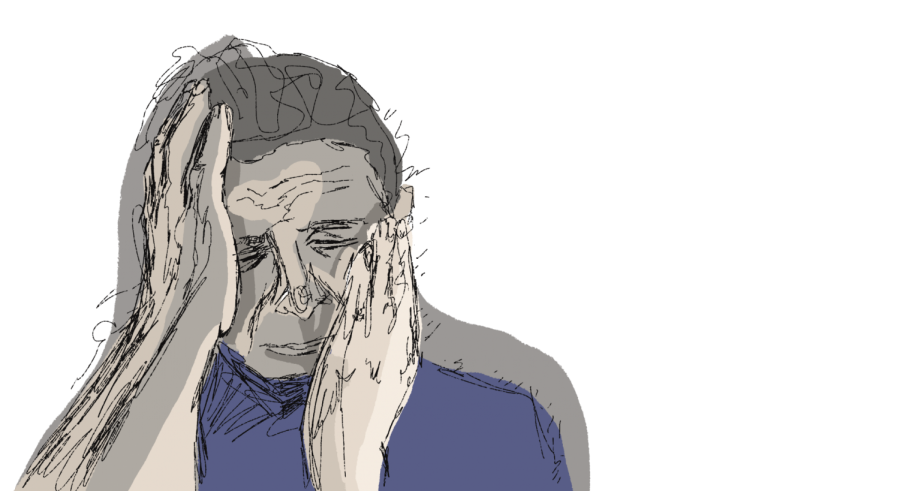

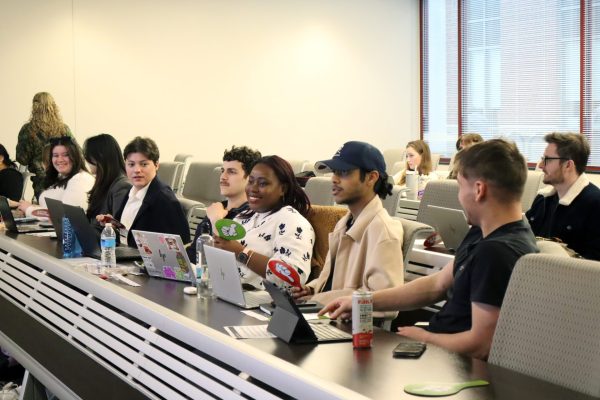
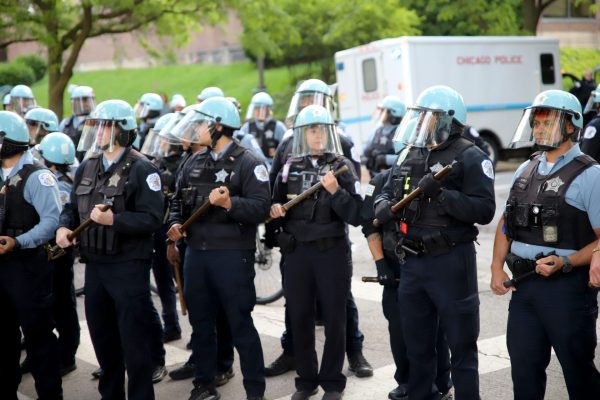
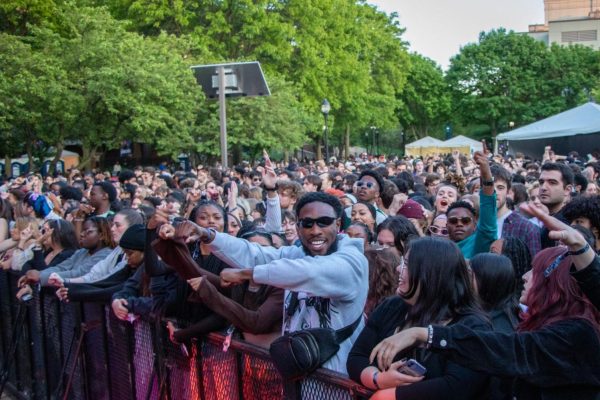
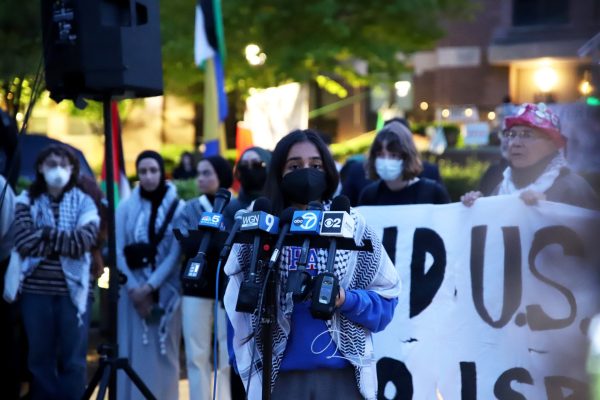




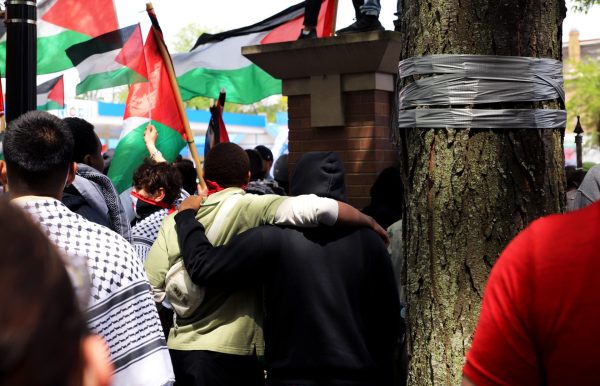
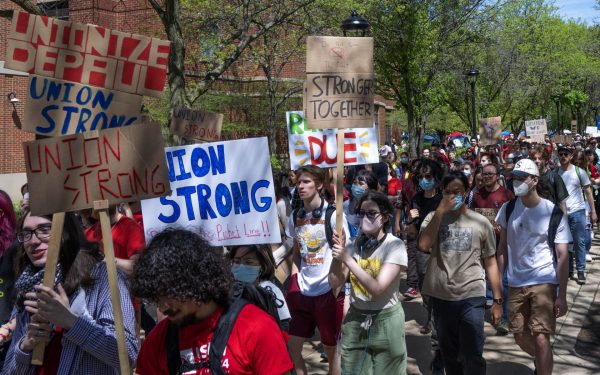
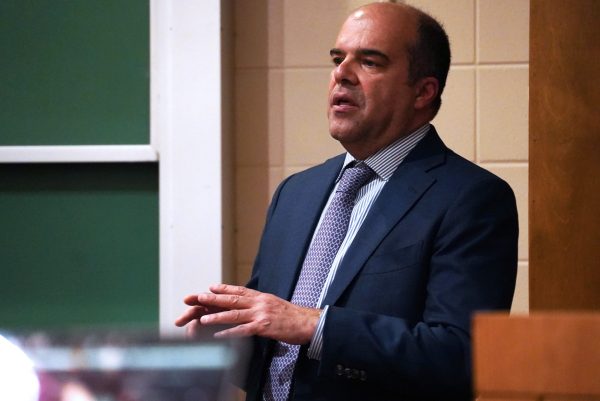


Bandi Shaw • Oct 4, 2021 at 11:55 am
https://web.archive.org/web/20200522221643/https://offices.depaul.edu/student-affairs/about/departments/Pages/ucs.aspx